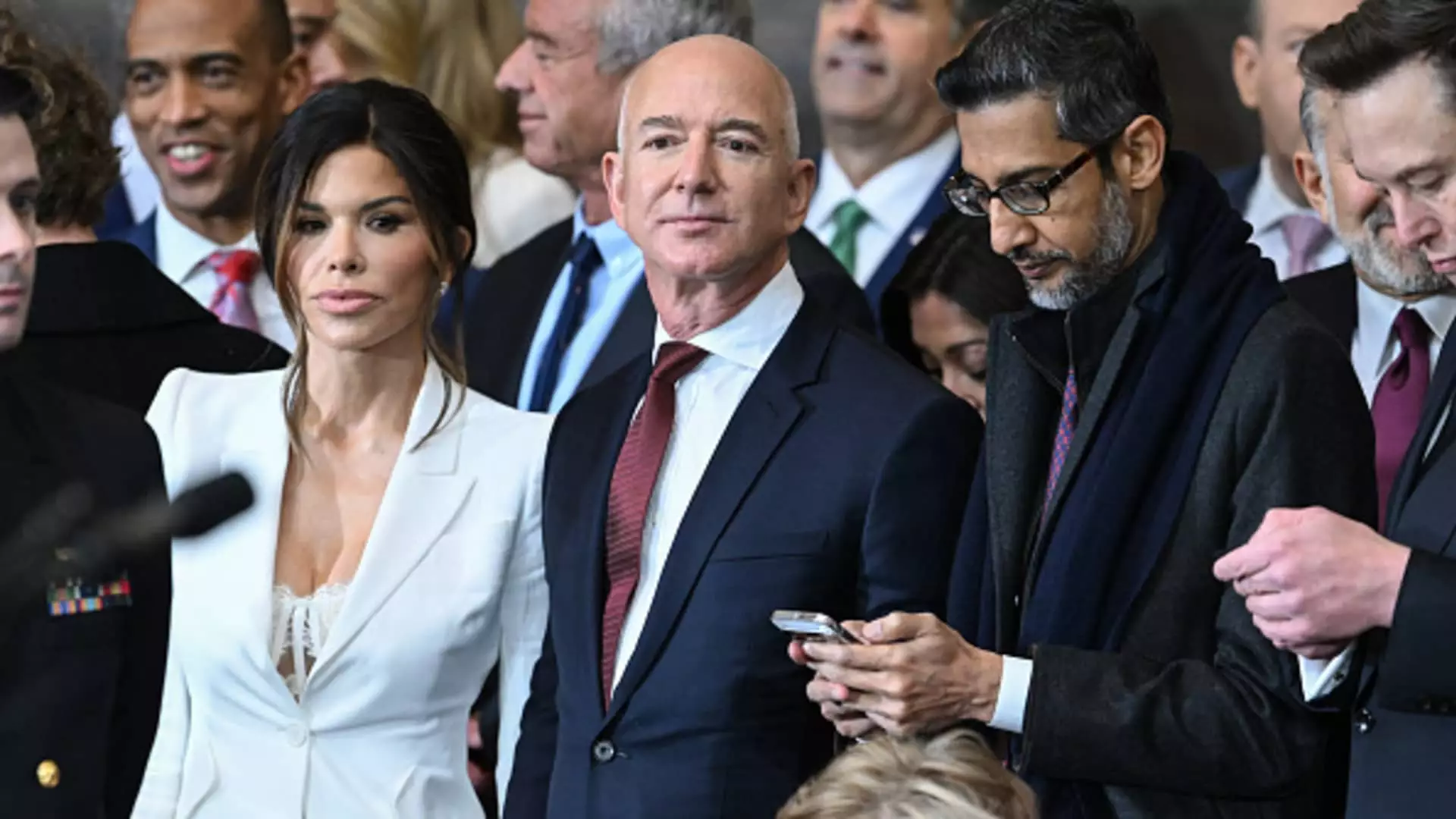The announcement from Jeff Bezos, the founder of Amazon and owner of The Washington Post, regarding the reconfiguration of the newspaper’s editorial stance has sparked significant debate and backlash within the media industry and among the public. By declaring that the opinion pages will focus exclusively on promoting “personal liberties and free markets,” Bezos is making an audacious move that distances the paper from traditional journalistic standards of offering diverse viewpoints.
Bezos’ directives significantly alter the role of The Washington Post in the media landscape. Historically, newspapers have served as platforms for a multitude of opinions, allowing readers to engage with contrasting perspectives. This approach not only enriches democratic discourse but also reinforces journalistic integrity by showcasing a commitment to unbiased reporting. By limiting the scope of the op-ed pages to a singular viewpoint, Bezos fundamentally shifts that balance, inviting criticism about the diminishing independence of not only the opinion section but the newspaper as a whole.
Editorial policy has always been a delicate dance between the ownership’s perspectives and the journalists’ prerogatives. While it is not unusual for owners to influence editorial direction, Bezos’ unprecedented directive raises concerns about censorship and autonomy. His comments suggest a belief that alternative viewpoints are readily accessible elsewhere on the internet; however, this argument undermines the essential role traditional media play in aggregating, curating, and critically analyzing diverse opinions.
The announcement has met with skepticism and criticism from various quarters within the Post. Former editor Marty Baron expressed his disgust, indicating a profound disconnect between Bezos’ vision and the values upheld during his editorial tenure. This dissent was echoed by current staff members, highlighting an internal rift that could destabilize the newsroom. David Shipley’s resignation as Editorial Page Editor underscores the personal conflict that can arise when core values clash with the imposed corporate philosophy. Shipley’s choice to step down signals an unwillingness to support editorial changes that may contradict journalistic principles.
Critically, the post-announcement atmosphere has led to notable staff attrition, with individuals like cartoonist Ann Telnaes and columnist Jennifer Rubin vocally resigning. Their departures suggest a palpable fear that the Post could descend into an echo chamber, stifling creativity and critical analysis in favor of a more homogeneous narrative. Such an environment could compromise the journalistic mission that The Washington Post has historically championed.
As political narratives evolve, so too do the pressures exerted on media outlets. Bezos’ relationship with former President Donald Trump complicates the situation. As criticisms of the “Fake News” label aimed at The Washington Post proliferate, the perception that Bezos is aligning the paper’s opinion section with Trump’s ideology could incite skepticism among readers. This relationship raises questions about editorial independence in a time when anti-press sentiment is rising, particularly from political figures who view journalism’s role as adversarial.
Moreover, The Washington Post’s decision not to endorse a presidential candidate in the upcoming election—historically a significant commentary on national politics—further signifies a departure from established editorial practices. This lack of endorsement, combined with a restrictive opinion policy, not only alienates readers but also raises alarms about the paper’s resilience in a volatile political landscape.
The implications of this editorial policy change extend beyond the walls of The Washington Post. Other media organizations may perceive Bezos’ decision as a model for aligning editorial content with corporate interests, potentially leading to a domino effect of reduced editorial independence across the industry. Journalism is predicated on the pursuit of truth, often requiring the challenging and uncomfortable task of amplifying dissenting voices. The erosion of this principle in favor of a market-based approach to opinion journalism could inhibit the function of the press as a watchdog, which is vital in a healthy democracy.
The reorganization of opinion pages at The Washington Post may resonate with certain audiences, especially those who celebrate the focus on personal liberties and free markets. However, the larger question remains: at what cost does this narrow approach come to journalistic integrity and public trust? If major publications prioritize ideological compliance over diverse discourse, the media landscape risks becoming fragmented and polarized, undermining the very democracy that it seeks to uphold.
In reflecting on Bezos’ new direction for The Washington Post, it is imperative to consider not just its immediate implications but also its long-term effects on the fabric of American journalism—a fabric that thrives on the richness inherent in diverse opinions, rigorous debate, and the fearless pursuit of truth.


Leave a Reply